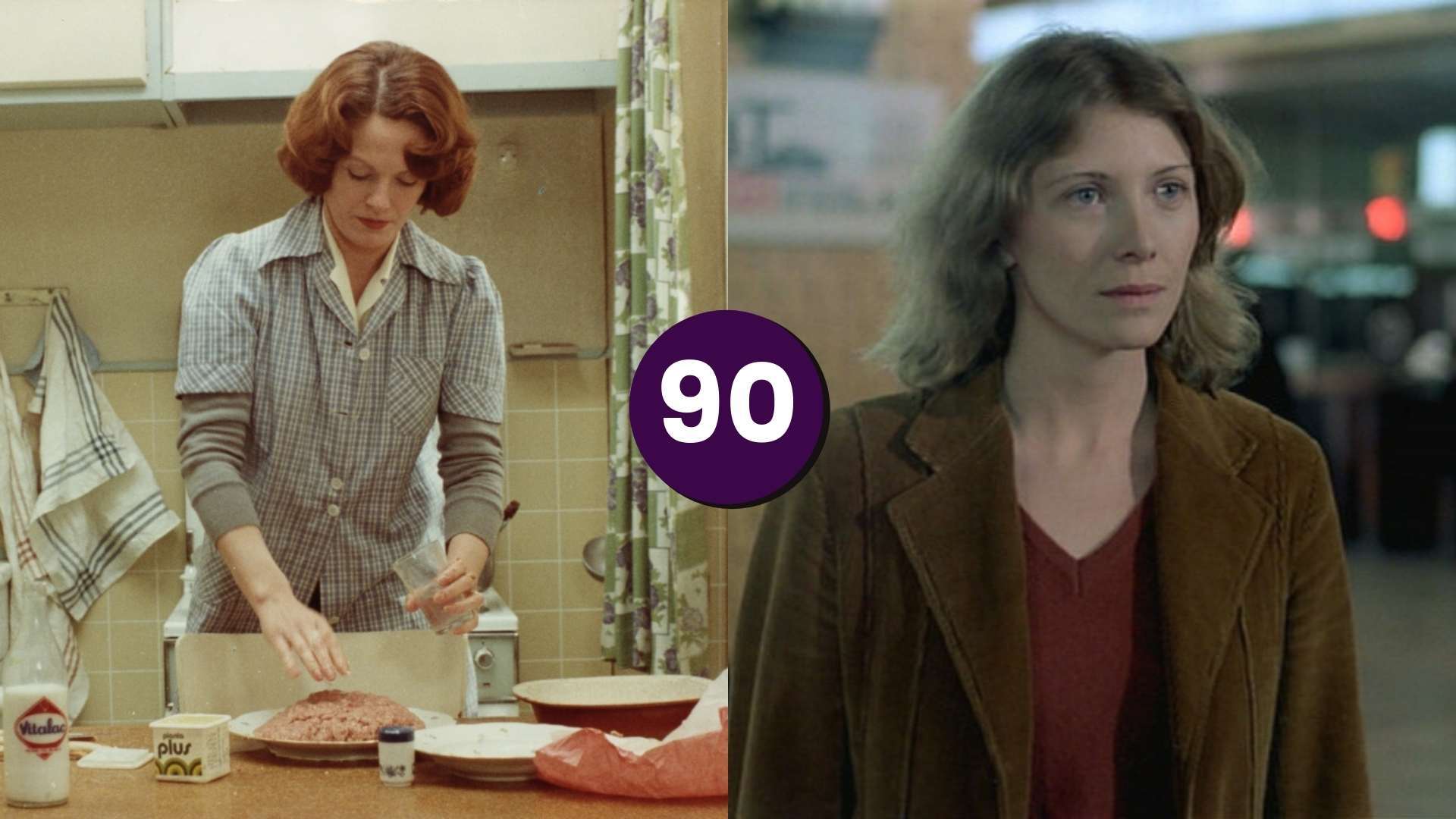On this Seventh Row Podcast episode, we celebrate Mother’s Day with the queen of on-screen mothers, Chantal Akerman, and her films Jeanne Dielman, 23, quai du Commerce, 1080 Bruxelles and Les Rendez-vous d’Anna.

This Chantal Akerman podcast episode features Editor-in-Chief Alex Heeney, Executive Editor Orla Smith, Associate Editor Brett Pardy, and Contributing Editor Lindsay Pugh.
On this podcast episode on Chantal Akerman’s mothers
- Chantal Akerman’s legacy (4:20)
- Jeanne Dielman (17:52)
- What to make of Jeanne Dielman‘s ending (34:31)
- Les Rendez-vous d’Anna (41:03)
- Mothers in the two films (55:25)
- Jewish identity in Akerman’s films (1:00:52)
- Akerman’s aesthetic (1:09:24)
- Conclusion (1:13:36)
Jeanne Dielman, 23, quai du Commerce, 1080 Bruxelles (1975) – on the podcast
Akerman’s breakthrough feature, Jeanne Dielman, follows a single mother’s household labour routine, showing chores and food preparation in real-time, set over the course of three days.
Jeanne Dielman is available on VOD, DVD/Blu-ray, and is streaming on The Criterion Channel in Canada and the US
Les Rendez-vous d’Anna (1978) – on the podcast
Anna (Aurore Clément) is a filmmaker, travelling through West Germany, Belgium, and France to screen her new film. Along the way she meets various connections from her past, including her mother, most of whom talk at her, rather than with her.
Les Rendez-vous d’Anna is available on DVD and is streaming on The Criterion Channel in Canada and the US
Episode notes – Chantal Akerman’s mothers podcast
- Read Alex’s review of Chantal Akerman’s 2015 film, No Home Movie
- Visit Lindsay’s website Woman in Revolt
- Preview or purchase our ebook Tour of memories: The creative process behind Joanna Hogg’s The Souvenir
- Preview or purchase our ebook Road to nowhere: Kelly Reichardt’s broken American dreams.
- Preview or purchase our ebook Peterloo in process: A Mike Leigh collaboration
- Listen to our episode featuring The Assistant and Promising Young Woman (content warning: discussion of sexual violence)
- Listen to our episode featuring Spinster
- Listen to our episode featuring Meek’s Cutoff
- Listen to our episode on the films of Anne Émond
- Read our newest feature, our editors picks for the fifty most exciting emerging actors working today
- Read Orla’s interview with Nadia, Butterfly cinematographer Stéphanie Anne Weber Biron
[fusebox_transcript]

